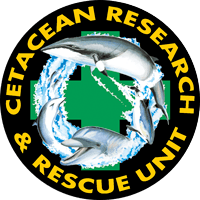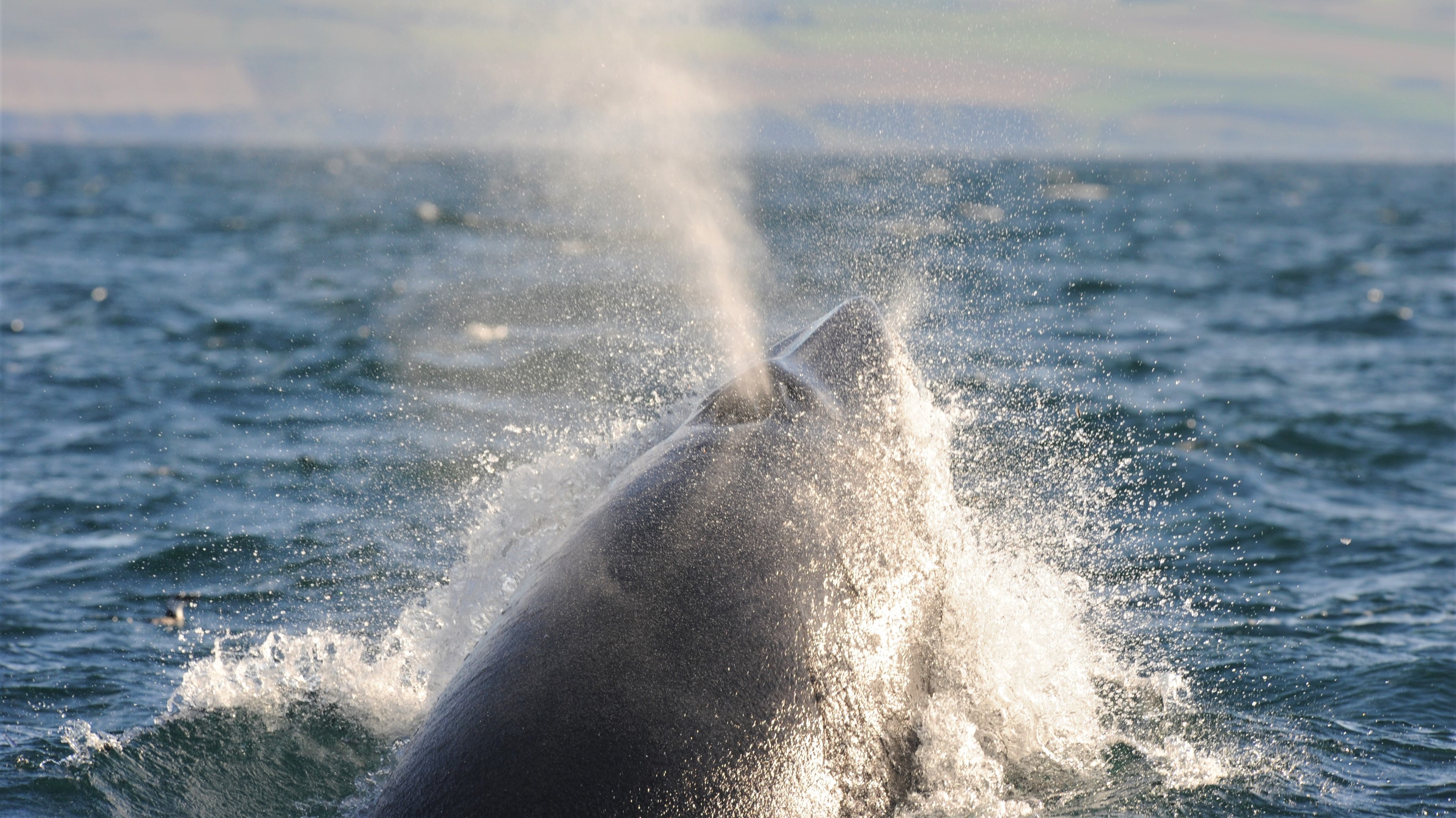In 2000, the CRRU began a pilot study of the coastal minke whales frequenting the southern Moray Firth — the regular sightings of these animals providing an excellent opportunity for a behavioural and ecological investigation of these animals.
Sadly, the minke whale is a species in which commercial whaling interests are still focused. With the recent resumption of hunting for minkes in Icelandic waters and an overall quota of 917 animals for the Norwegian whaling fleet in 2023, the impacts of these activities present a considerable threat to these whales.
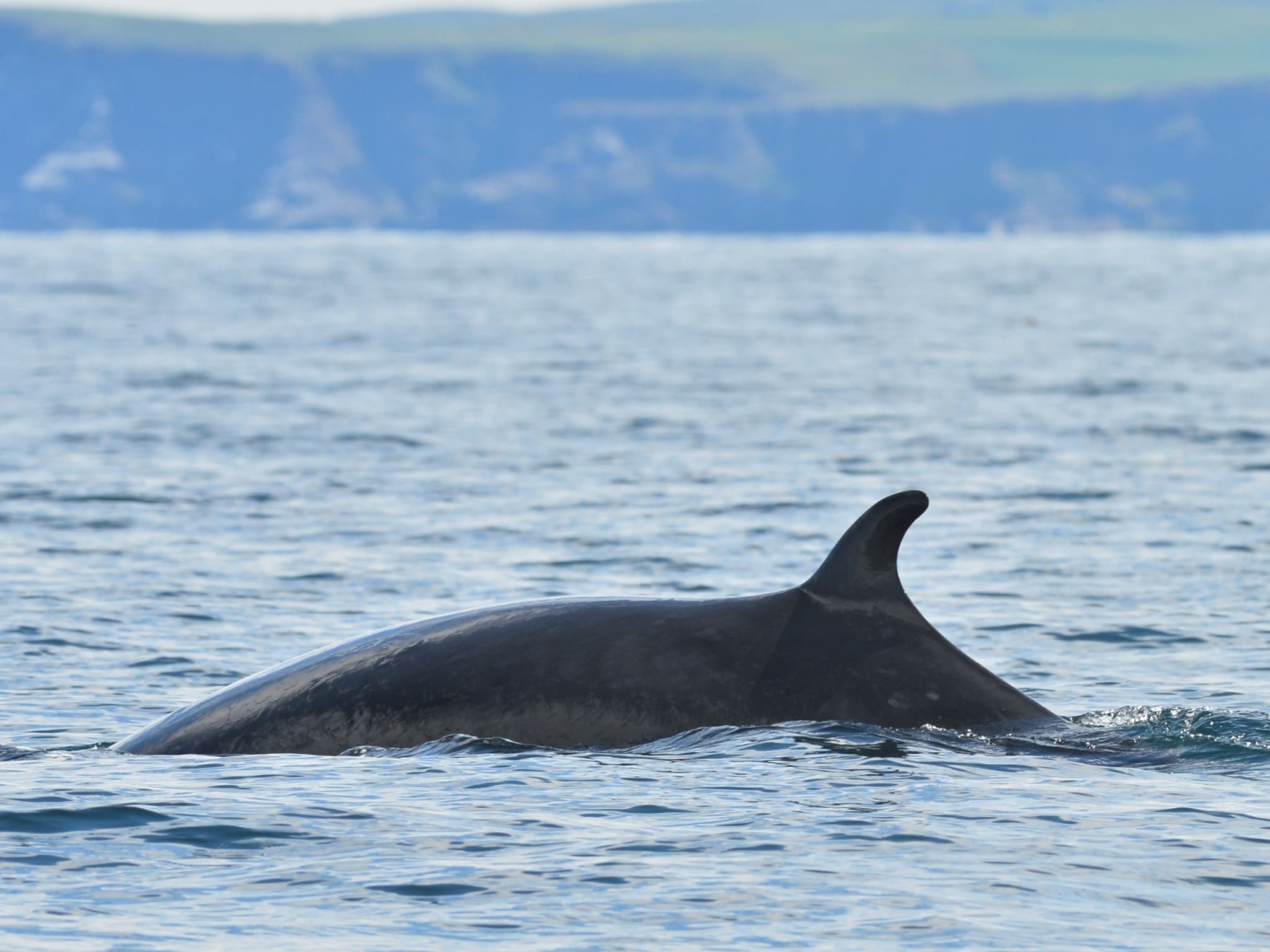
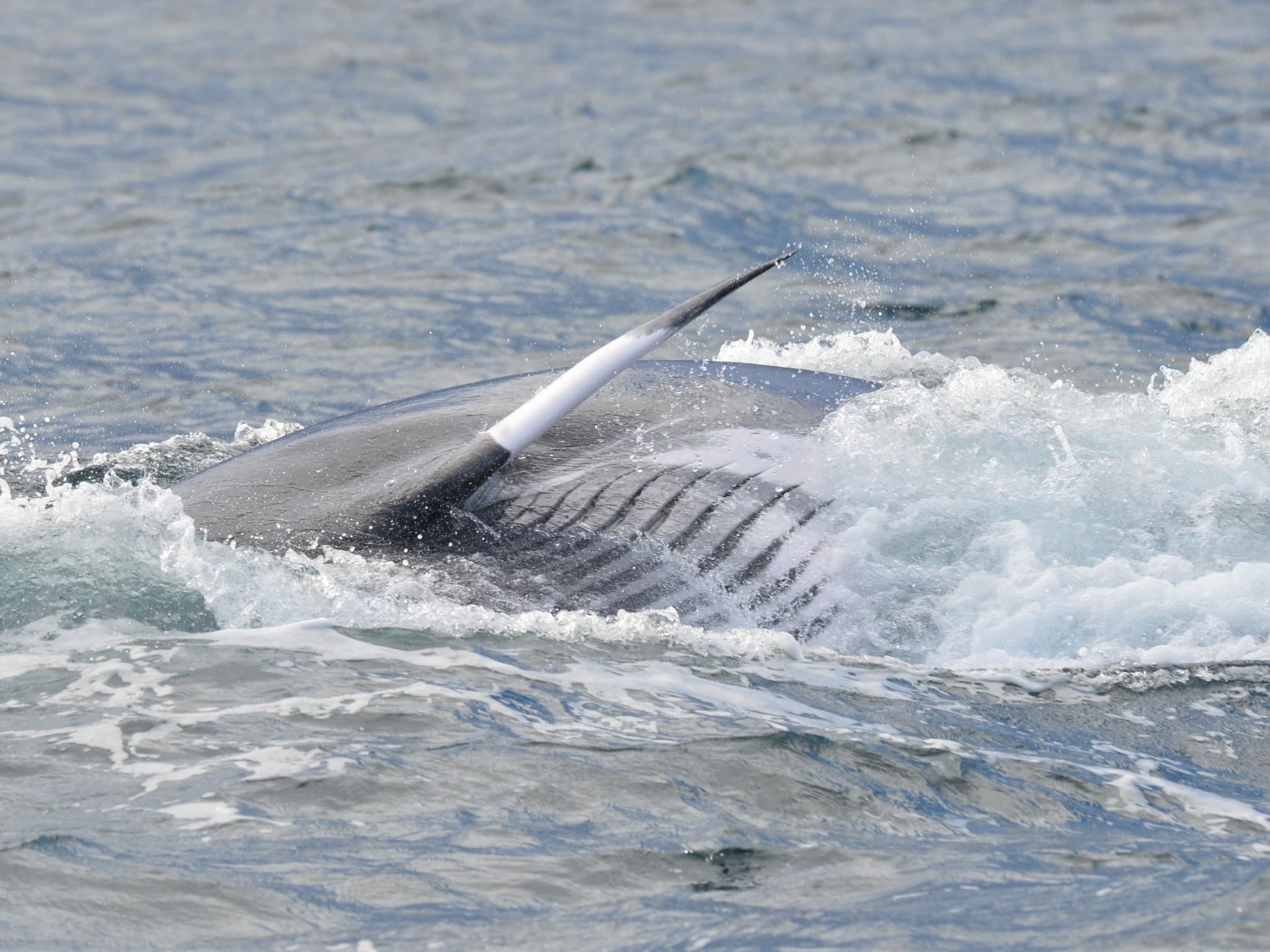
Current research studies employed by CRRU include mark capture-recapture, feeding and diving ecology studies, radio-isotope work, environmental DNA and applied remote sensing techniques. The team have published a plethora of research papers, theses and government reports, and this long-term monitoring work recently resulted in the designation of the first ever Marine Protected Area for the species in the Moray Firth, Southern Trench (click HERE for further information and see map below).
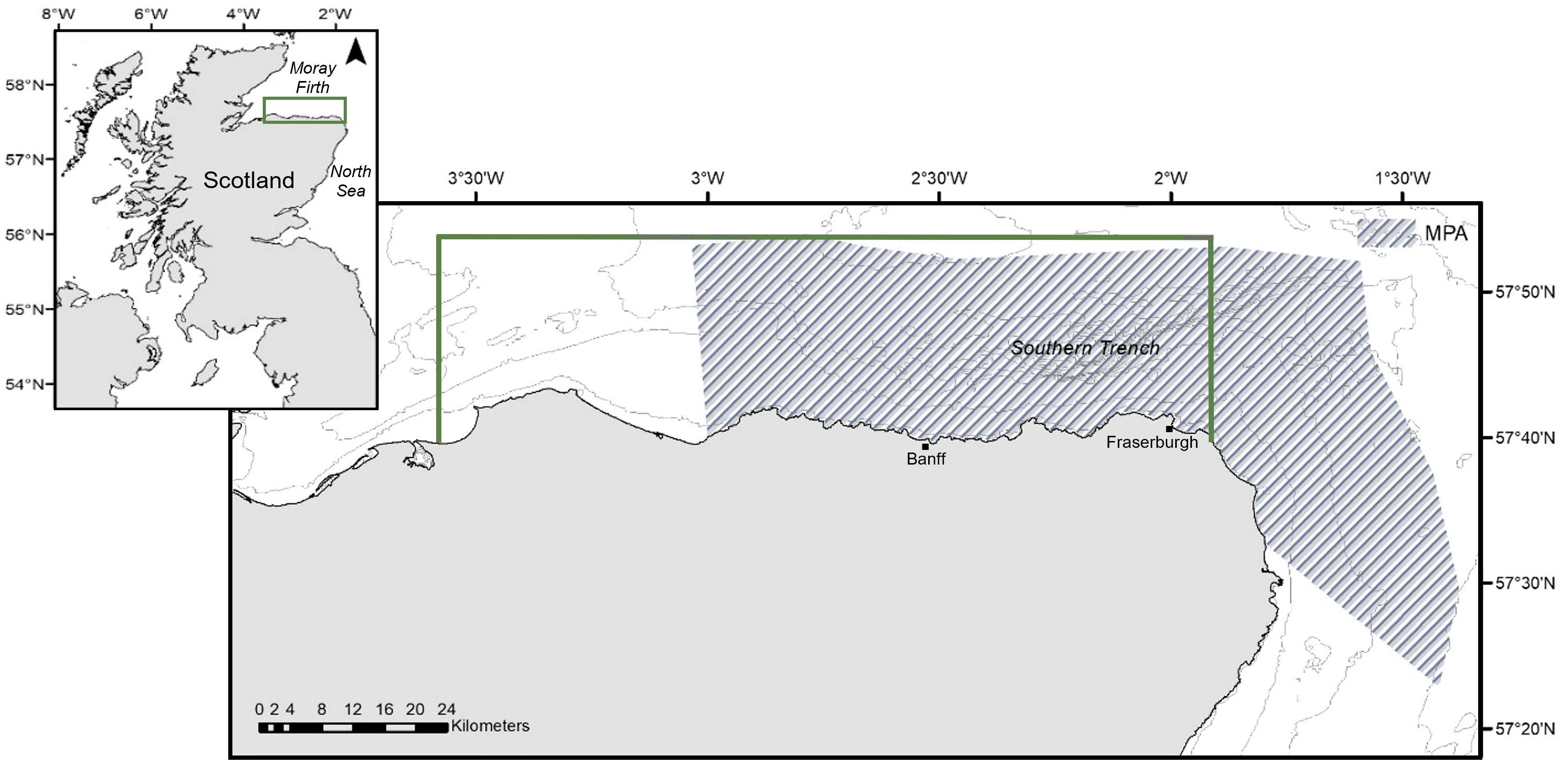
CRRU's ongoing work with these whales is considered fundamental for the conservation and management of this species through a better understanding of the movements, habitat preferences, behaviour and niche segregation, necessary to inform the adaptive management process. The nearshore habitats utilised by juvenile minke whales, for example, may harbour greater impacts from planned anthropogenic activities, such as the proposed export cable corridors and landfall sites for several consented wind farms, and associated increases in vessel traffic in these areas from harbours traditionally important for fishing activities.
Long-term photo-identification studies show that some whales utilising the Southern Trench MPA may remain in the region or return in subsequent years (to view our minke whale catalogue, click HERE). As such, there is a further risk of exposing the same individuals to these contiguous anthropogenic stressors over time.
To learn more about these fascinating whales, visit our minke whale fact file page.
